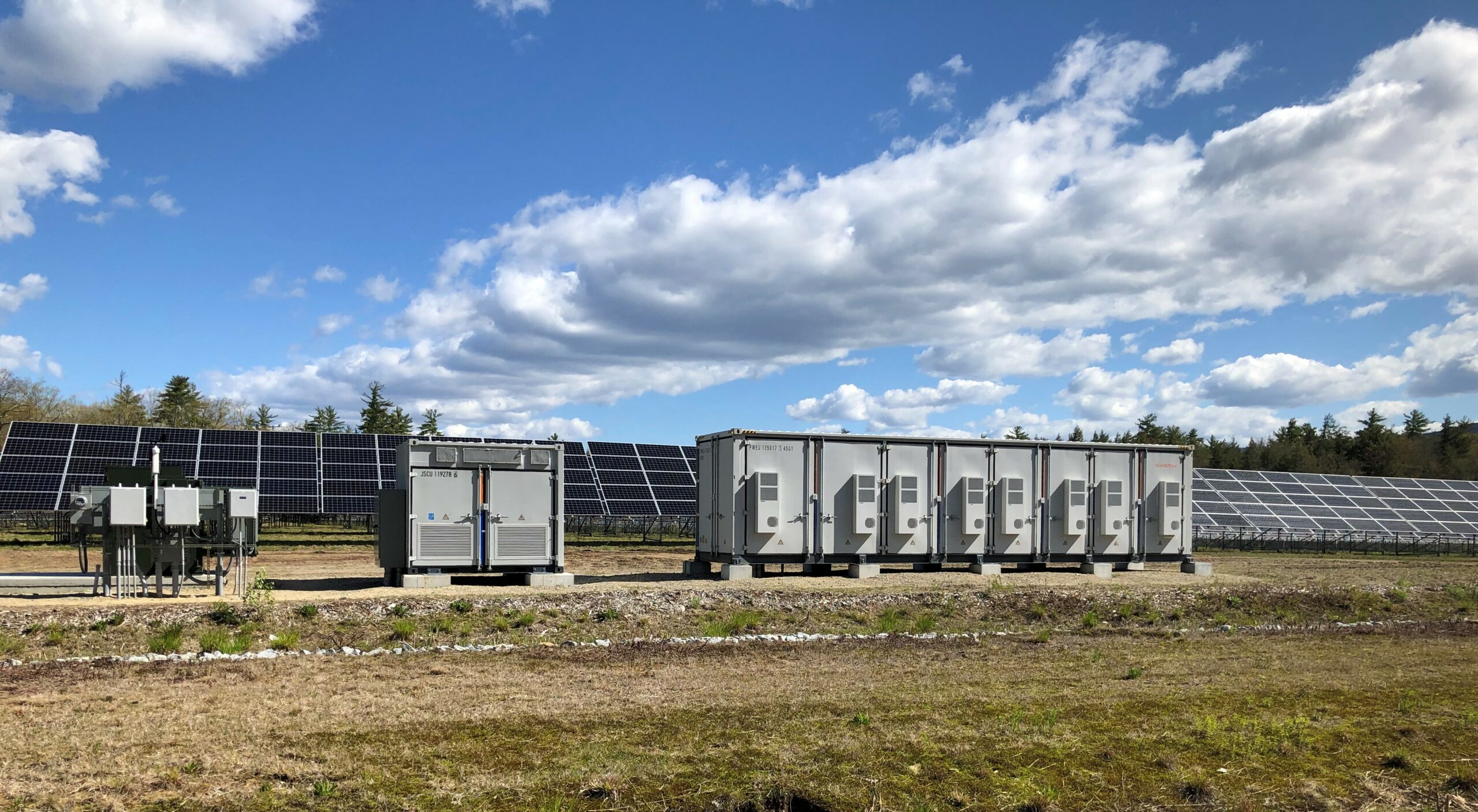What I believe is the first utility-scale electricity-storage project in New Hampshire is getting turned on: a 2.45 MW battery alongside a solar farm in Moultonborough. A Here’s the announcement from New Hampshire Electric Cooperative:
The 2.45 megawatt (MW) / 4.9 MwH battery project was developed in partnership with ENGIE North America (ENGIE), a leading provider of energy storage services.
ENGIE will own and operate the battery unit, which is located on the site of NHEC’s 2 MW solar array
in Moultonborough. The battery unit will charge from NHEC’s distribution system during times of
low demand and discharge during periods of peak regional electricity use. By discharging during
hours of peak electric usage, the battery will save NHEC’s members money on regional market and
delivery charges while reducing demand on the grid.
The battery storage unit is the largest in New Hampshire and can fully charge or discharge within two
hours. NHEC and ENGIE received all necessary approvals from the Town of Moultonborough.
The battery is housed in a pre-fabricated 40 foot container located within the fence line of NHEC’s solar
facility in Moultonborough, New Hampshire. The battery unit has on-site fire suppression equipment
and will be monitored 24 hours a day, year-round. (Note: This is important because concern from the fire department killed a much larger battery proposal in Littleton.)
As part of the innovative partnership agreement with ENGIE, NHEC will discharge the battery to
supply energy to its members up to 70 times per year. The battery project will provide NHEC with
insight and direct experience into how battery storage technologies interact with its electrical system
and respond to price signals, and will be used to reduce NHEC’s transmission charges and regional
capacity payments. NHEC estimates these discharges will save its members $2.3 million over the next
12 years.
“Energy storage is a rapidly evolving technology that has a key place in our strategic vision for our
business model of the future. It’s important for NHEC to gain firsthand experience with batteries so
we can better understand the benefits they have to offer our members and the operation of our
system,” said Steve Camerino, President and CEO of NHEC. “As more Co-op members install their
own batteries, NHEC needs to be ready to support them with a flexible, responsive grid.”


 Return to the Concord Monitor
Return to the Concord Monitor
And what is the annual rental cost?? If more that $2.3 million over 12 years what is the cost benefit????
Article could be improved by saying how much energy the battery can store in addition to its discharge rate (2.45 MW). It might be 2.45 MW for an hour or for a day. It makes a difference. I don’t say my car’s gas tank holds 2 gallons per hour of fuel, I say it holds 12 gallons.
You must have missed it, at the beginning, it says 4.9 MwH.
I added that later – probably after the comment was written.